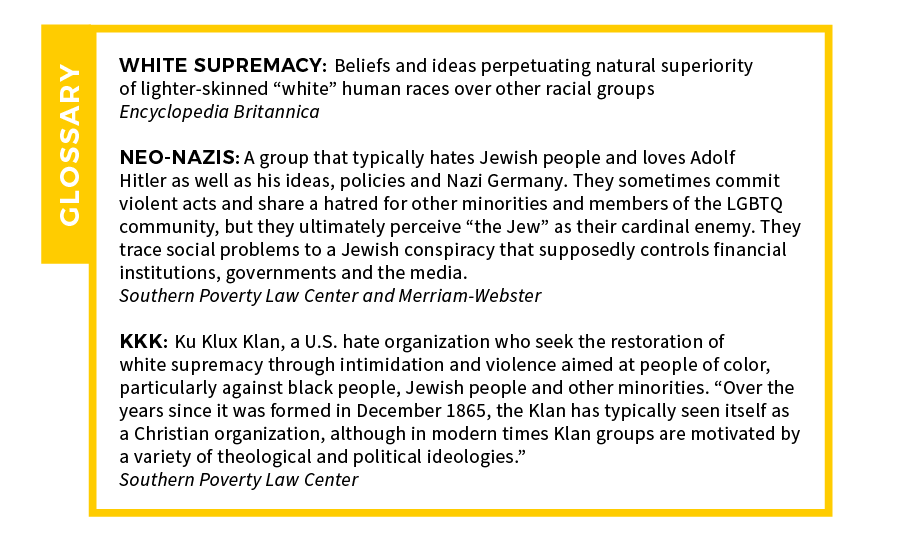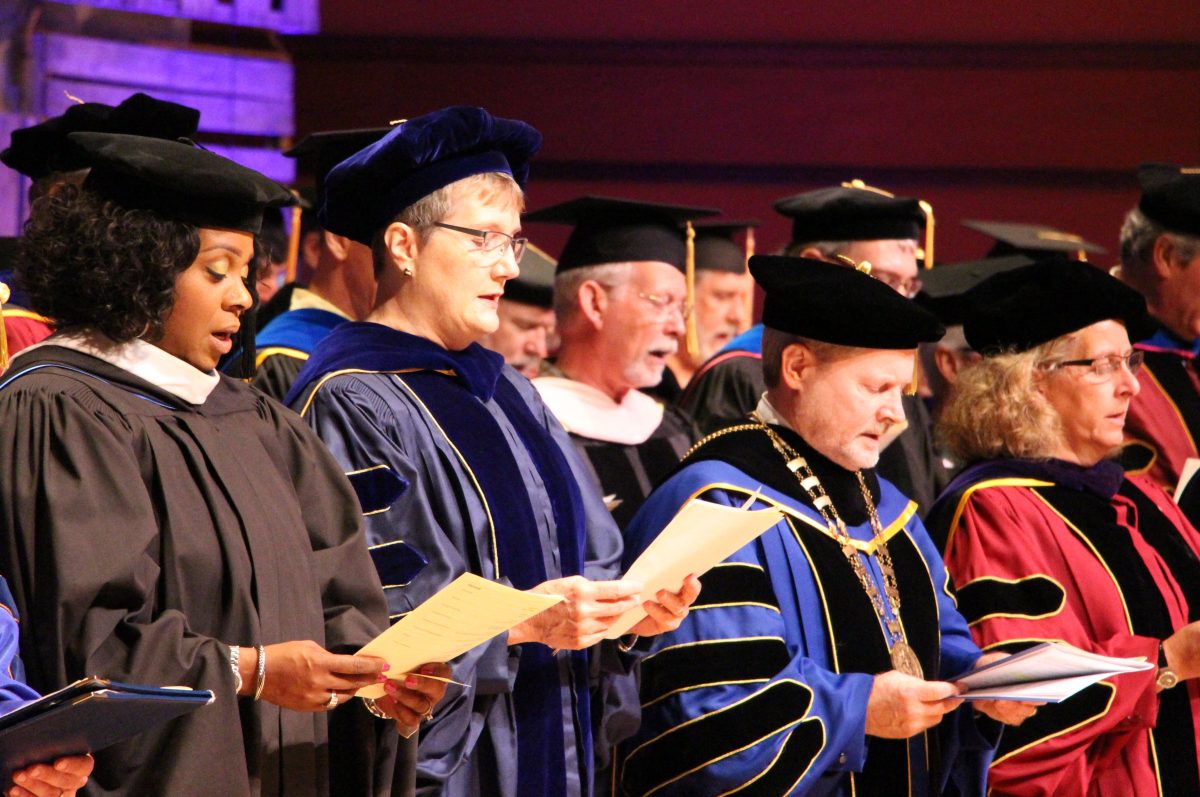Last year a white supremacist group posted propaganda on Bethel’s campus. Now there’s a nationwide protest and Bethel delivered a statement. How are Bethel students responding?
By Callie Schmidt and Abby Petersen
Protesters gathered in Charlottesville, Va. Aug. 12 to protest the removal of a statue of Robert E. Lee, a confederate general, in the city, as well as several other confederate monuments in the south, according to the New York Times. A vehicle with Ohio licence plates plowed through a crowd of counterprotesters, killing 32-year-old Heather Heyer and injuring at least 19 others. The violence prompted national attention, including an official statement from U.S. President Donald Trump.
“Racism is evil,” Trump said in a statement from the White House Aug. 14. “And those who cause violence in its name are criminals and thugs, including the KKK, neo-Nazis, white supremacists, and other hate groups that are repugnant to everything we hold dear as Americans.”

Bethel University President Jay Barnes and Provost Deb Harless issued a statement Aug. 18 responding to the events in Charlottesville, which came at the request of biblical and theological studies professor Christian Collins Winn and Chief Diversity Officer Ruben Rivera.
The statement, sent by email to all students, faculty and staff, urged the Bethel community to show their love for God through their love for others.
The statement condemned the acts of white supremacy in Charlottesville, calling them “hateful” and “violent.”
According to Campus ministries dean and pastor Laurel Bunker, though the events in Charlottesville are shocking to see in 2017, these ideologies are not new.
“We have white racist ideologies that have been passed down in our history classes,” Bunker said. “We have had (white) supremacy become enshrined in our culture, and as a result … there’s a segment of white Americans who are afraid of the browning of America.”
The events reminded Bunker of when she first became campus pastor in 2008. A group of students approached her in the dining center, concerned that if Barack Obama became the president, “all of the black people were going to rebel” and beat them up.
According to Bunker, the rise of white supremacist ideologies has no indication of burning out anytime soon, which is what she finds most shocking.
“So my question is, what are we going to do at Bethel this year?” Bunker said. “Are we going to face the problem and lovingly confront it or become self-protective and arrogant, and try to act as though the narrative of persons of color in this country is false?”
Curtiss DeYoung, CEO of Minnesota Church Council, preached Aug. 20 at Park Avenue United Methodist Church in Minneapolis. DeYoung addressed Charlottesville in his sermon, his central point being how we need to resist racism and resist anti-semitism and the kinds of ideologies expressed at Charlottesville.
“We do that through standing up, speaking up, through protest,” DeYoung said. “But that has to be followed up through addressing the social justice issues related to racism…Addressing the systems themselves that oppress people.”
In a place such as Bethel, where DeYoung used to teach reconciliation studies, he suggests looking at our policies for racial bias.
According to DeYoung, students are returning to college in the midst of a national conversation about race, which means Charlottesville should be addressed week one in classes and in chapel.
Bunker hopes that students coming in with nationalist ideologies and supremacist leanings will be able to come forward and the community will be willing to lovingly point out how it can hurt others different from themselves.
“Supremacy doesn’t just fly in the face of truth, it erodes the soul and it destroys the humanity of other people,” Bunker said.

![Nelson Hall Resident Director Kendall Engelke Davis looks over to see what Resident Assistant Chloe Smith paints. For her weekly 8 p.m. staff development meeting in Nelson Shack April 16, Engelke Davis held a watercolor event to relieve stress. “It’s a unique opportunity to get to really invest and be in [RAs’] lives,” Engelke Davis said, “which I consider such a privilege.”](https://thebuclarion.com/wp-content/uploads/2024/05/041624_KendallEngelkeDavis_Holland_05-1200x800.jpg)















